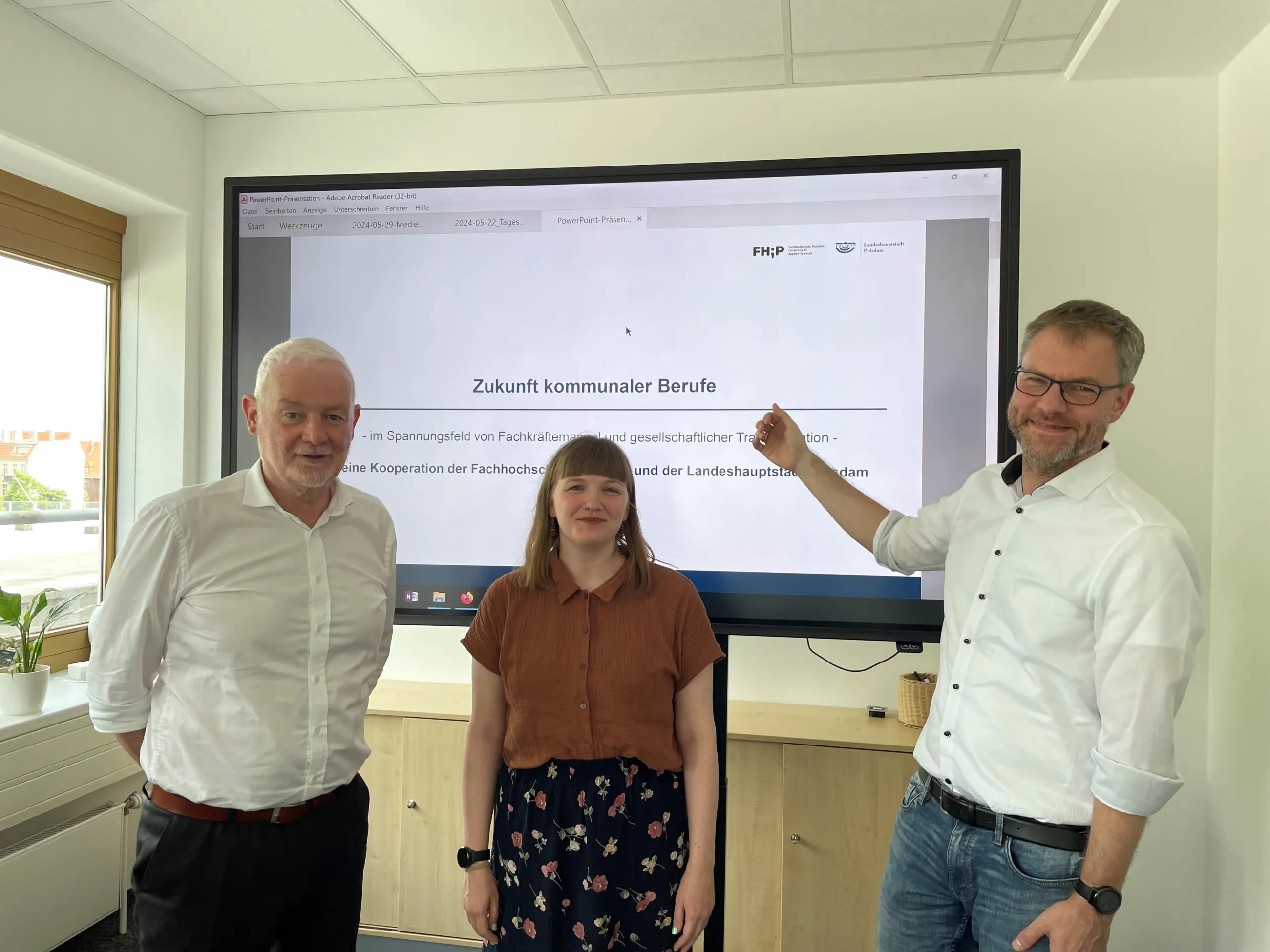Press release
State capital and Potsdam University of Applied Sciences enter into research cooperation to secure skilled municipal workers

The state capital of Potsdam and Potsdam University of Applied Sciences have launched a joint initiative to look ahead and secure skilled labour for municipal professions until 2030.
The strategic partnership in the "Municipal Professions" project is of eminent importance in view of the noticeable demographic shortage of skilled labour and the rapid changes brought about by technology, ecology and social dynamics. The results of this research collaboration should help to strengthen the resilience of the state capital of Potsdam to the challenges of the 21st century and shape a sustainable future for Potsdamers.
"With this collaboration, we want to gain a profound understanding of the development of the approximately 200 occupational groups affected and analyse the situation with foresight," says Dieter Jetschmanegg, Head of Central Administration at the state capital of Potsdam. "In the best-case scenario, we can then take targeted action to overcome the acute shortage of skilled labour. Science helps us in an extraordinary way."
Prof. Dr Tobias Schröder, Research Professor for Sustainable Urban Development Strategies and Vice President for Studies and Teaching at the Potsdam University of Applied Sciences, emphasises the importance of this cooperation: "The close cooperation between the state capital and the Potsdam University of Applied Sciences enables us to develop future-oriented solutions for the shortage of skilled workers in municipal professions. By analysing the changing requirements, we can make a valuable contribution to the long-term development of our region."
Quantitative and qualitative analyses are planned that will provide a detailed look at the future demand for skilled workers and the changes in the required skills. In the quantitative forecast, the forecasts are intended to shed light on the actual demand for skilled workers up to 2030 in the individual occupational groups, taking into account fluctuation, retirement and regional labour market trends.
The qualitative forecast focuses on the significant changes that certain occupational groups will experience as a result of social transformation processes. This includes both new job profiles and the potential for the obsolescence of certain professions. The effects on the degree programmes at the University of Applied Sciences are also analysed. Based on the findings, measures will be developed to secure skilled labour, particularly for occupational groups with a predicted shortage. The possibility of cooperation between municipal employers and regional universities for the targeted training and qualification of skilled workers will also be considered. The aim is to focus the research project on the future viability of municipal professions and to position the state capital as a pioneer in overcoming the shortage of skilled labour.
The project is scheduled to run for two years and will be actively supported and accompanied by students from the university of applied sciences and managers from the state capital.
